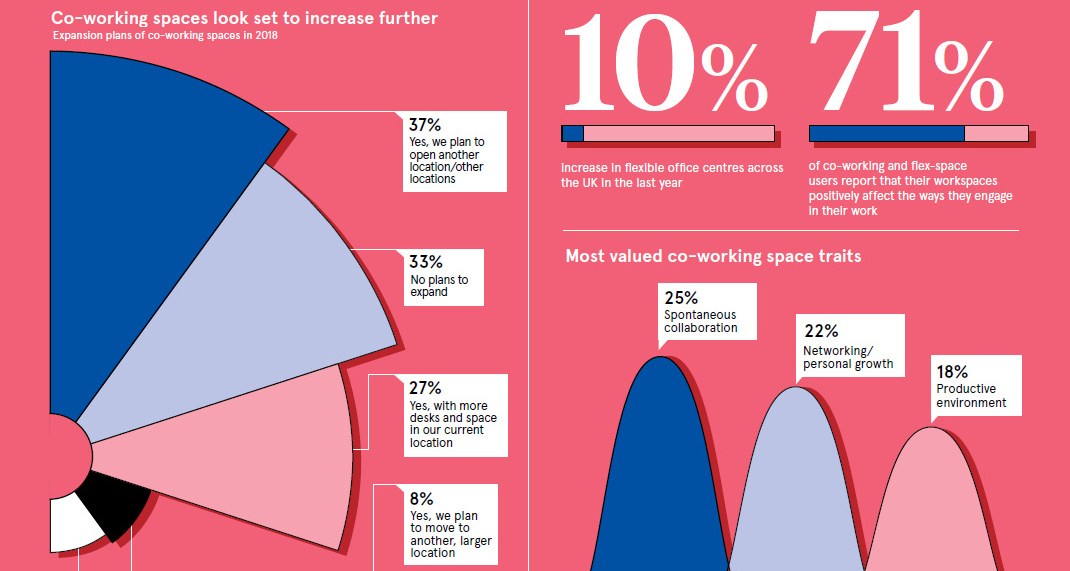
Visualizing the Rise of Co-Working Spaces
In the modern era, people can work from anywhere and everywhere.
Thanks to the cloud, wireless protocols, and collaboration software, it’s possible for workers to be productive from a nearby coffee shop, another town, or a different country entirely.
While this unprecedented freedom allows us to work further apart, it’s simultaneously enabled a new business model that brings people together. The rise of co-working spaces – led by companies like WeWork – is already a multi-billion dollar industry, and a growing mainstay of startup culture.
Co-Working Together
Today’s infographic comes to us from Raconteur, and it shows why companies – and especially fast-growing startups – are increasingly gravitating towards co-working spaces.
The co-working industry offers something to startups that traditional solutions cannot, which is the ability for office space to scale with the company’s growth both seamlessly and flawlessly. Further, by covering all the essentials, from working wireless internet to an unlimited supply of coffee, this new model allows startups to focus on what matters, such as achieving product-market fit or the latest pivot.
The industry is expected to grow at a 12% CAGR over the next five years, and there’s even talk that segment-leading WeWork will be raising money at a $35 billion valuation.

Beyond the Value Prop
The prospect of “Space-as-a-Service” is certainly a compelling one for fast-growing startups, but what other valid reasons factor into the momentum behind co-working spaces?
According to co-workers themselves, here are the ten highest-ranking benefits of the model:
- Social and enjoyable atmosphere (59%)
- Interaction with others (56%)
- Community (55%)
- Close distance to my home (51%)
- Like-minded people (47%)
- Good value for money (41%)
- Good transport connections nearby (41%)
- Basic office infrastructure (38%)
- Knowledge-sharing (35%)
- Big open workspace (34%)
All in all, the value added by co-working spaces seems to be very real for the companies that call these shared spaces home.
As a result, it will be no surprise to learn that the global co-working industry is expected to expand to 30,432 spaces and 5.1 million members by 2022.










